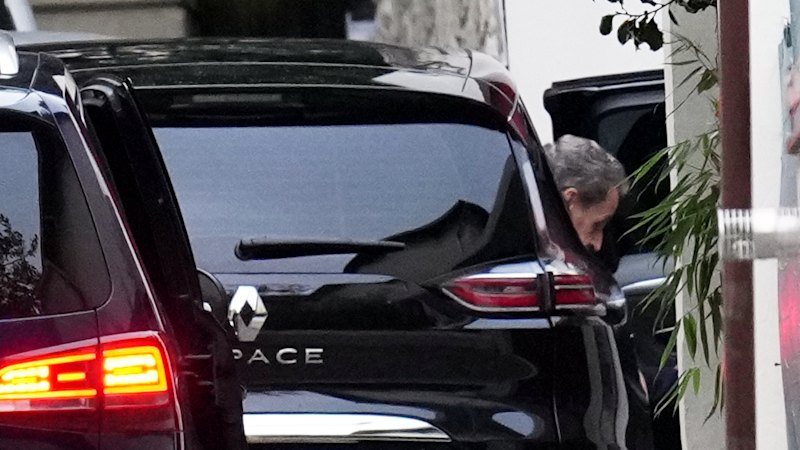
France’s former president Nicolas Sarkozy has been released from La Santé prison after a Paris appeals court granted him judicial supervision, just 20 days into his five-year sentence for criminal conspiracy. The charges stem from allegations that he financed his 2007 election campaign with funds from Libya.
Sarkozy, 70, exited the prison discreetly, avoiding the media glare as he returned to his home in western Paris. This low-key departure was a stark contrast to his public incarceration, when he was seen walking hand-in-hand with his wife, Carla Bruni-Sarkozy, as he waved to supporters.
The court has imposed strict conditions on Sarkozy’s release, including a ban on leaving France and contacting key figures involved in the case. An appeals trial is anticipated to occur in the spring.
Sarkozy’s Brief Incarceration and Legal Context
Sarkozy’s imprisonment marked a historic moment as he became the first former French head of state in modern times to be jailed following his conviction on September 25. He was detained on October 21 pending appeal but swiftly sought early release.
During a hearing conducted via video conference, Sarkozy described his prison experience as a “nightmare,” expressing disbelief at being incarcerated at the age of 70. He commended the prison staff for their support during his ordeal.
“I had never imagined I would experience prison at 70. This ordeal was imposed on me, and I lived through it. It’s hard, very hard,” Sarkozy stated.
Sarkozy was held in isolation due to safety concerns, with access to basic amenities like a toilet, shower, desk, and a small television. The proceedings did not delve into the motives for his sentencing, but Sarkozy maintained his innocence, denying any request for campaign financing from Libya’s Moammar Gadhafi.
Legal Implications and Future Proceedings
Under French law, release is generally favored pending appeal unless the individual poses a danger or flight risk. Sarkozy’s lawyer, Christophe Ingrain, highlighted the “normal implementation of law” and emphasized the focus on preparing for the upcoming appeal trial.
The court’s decision to release Sarkozy included a rare restriction, prohibiting contact with Justice Minister Gerald Darmanin and other officials. Darmanin, once a protégé of Sarkozy, visited him in prison, a move criticized by some magistrates as potentially compromising judicial independence.
Ongoing Legal Challenges
Sarkozy’s legal troubles are far from over. He faces separate proceedings, including a November 26 ruling by France’s highest court concerning illegal financing of his 2012 re-election campaign. Additionally, he is under investigation for alleged witness tampering in the Libya case.
In 2023, Sarkozy was convicted of corruption and influence peddling for attempting to bribe a magistrate, a verdict upheld by France’s Court of Cassation. These ongoing legal battles continue to cast a shadow over his legacy.
Historical Parallels and Expert Opinions
Sarkozy’s legal saga draws comparisons to other high-profile political figures entangled in legal controversies. Experts suggest that his case underscores the challenges of balancing political influence and legal accountability.
According to legal analyst Jean Dupont, “Sarkozy’s situation is emblematic of the complexities faced by former leaders who remain influential figures. The legal system must navigate these waters carefully to maintain public trust.”
As Sarkozy prepares for his appeal, the outcome could have significant implications for French politics and the judicial system’s handling of high-profile cases.
Stay informed with our foreign correspondents’ insights on global headlines. Sign up for our weekly What in the World newsletter.







